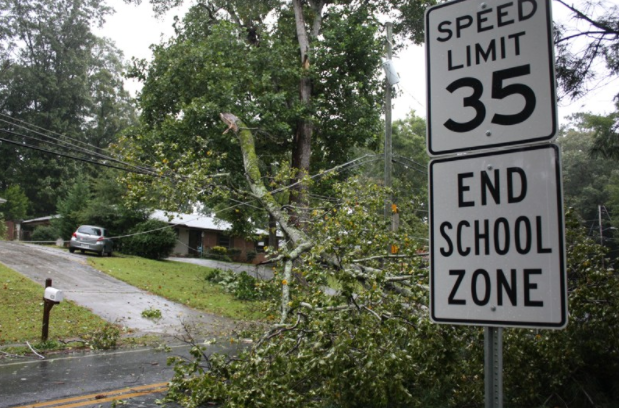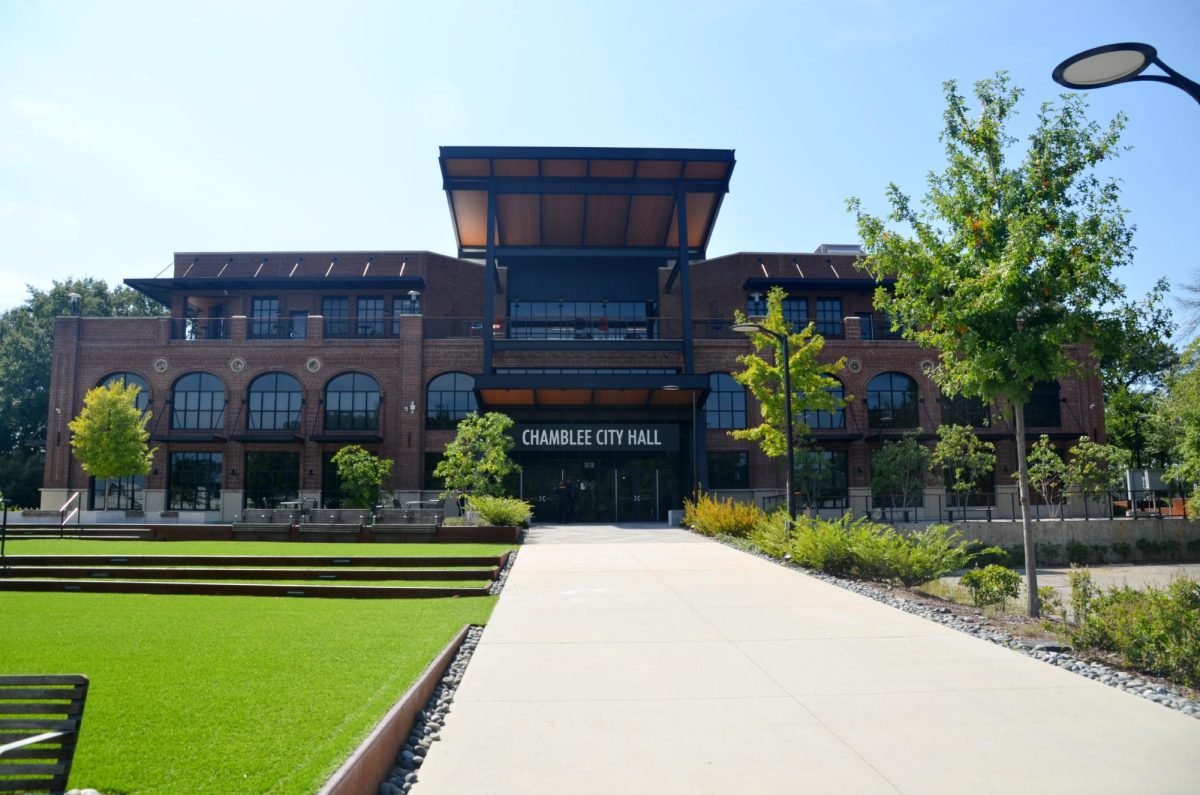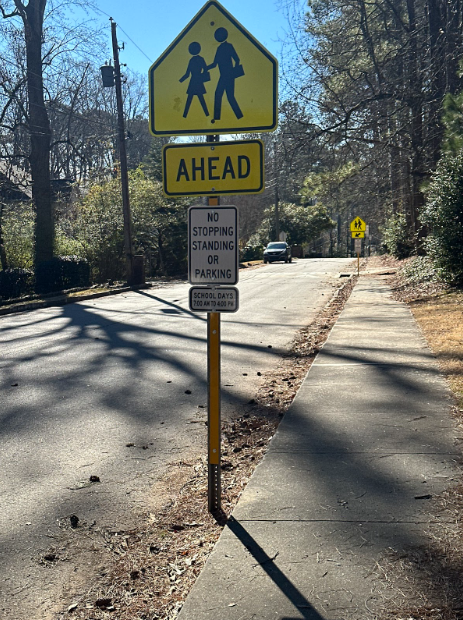When Hurricane Irma ravaged DeKalb County Schools in September, Chamblee students and staff relished the impromptu four day holiday. Little did they know, county administrators would take action weeks later to recoup a portion of the lost time.
“We first received notice that said it was going to go from October 2 until December 20,” said Assistant Principal Candace Steadman. “We received notification on [September 28] that they were going to think about revising the schedule based on stakeholder input, but the October schedule will stay in place, and they were going to determine alternative methods of making up the other days.”
In late September, students learned that the county wished to add 20 minutes daily for the rest of the semester. This left the county administration flooded with complaints from students and parents alike.
The twenty minutes would be parcelled out into three minute increments per period, excluding fourth period. Officials later shortened the dates for the extended days to include only the month of October.
“Missing four days of school is missing over 1,500 minutes of instruction,” said Assistant Principal Shervette Miller-Payton. “By adding 20 minutes to each school day in October we are gaining 25 percent of that time back or recovering one school day worth of time.”
In other words, somehow, someway, Chamblee students should plan for more makeup time.
“They’re still going to have those days made up,” said Steadman. “Stakeholders may come back and say to continue to extend the day until November and December, but the stakeholders might come back and say to shorten president’s weekend or shorten the winter break or something like that.”
Some teachers feel the extra time is necessary for them to make up time missed.
“Missing a day of instruction is always a loss,” said paraprofessional Clifford Edge.“We always need extra time for review, questions, and lab work.”
Many teachers, however, feel frustration for their students not getting enough sleep, as well as for their own delayed schedules.
“The problem is everybody has to stay longer,” said science teacher Leila Warren. “You’re getting home later. Everybody has to do homework. I already have students complaining about how exhausted they are. It’s just going to cause more stress on the students.”
For other teachers, the extension will have little effect on their classroom.
“I try to teach bell to bell most days, so adding three more minutes of practice time per class should be simple to implement,” said chemistry teacher Kathryn Zuehlke.
Numerous teachers don’t feel the need to utilize the extra class time.
“Some teachers told us that the extra three minutes would be talking time,” said senior Shaniah Williams. “Some of the teachers are actually going to use that time for extra material.”
Multiple teachers already had plans to catch students up without an extended schedule.
“I caught my students up the second day they got back. They’re getting all of the curriculum,” said Warren. “If you trust educators to do their jobs, we can deal with changes. We can get our kids where they need to be, because we are professionals.”
Student opinion is universally negative with regard to the additional class time.
“It’s not going to give you a substantial amount of growth,” said freshman Iris Tsouris. “Since it’s spread so thin, you can’t really absorb anything from three minutes.”
Senior Alex Harding has a similar outlook on the subject.
“Teachers can’t utilize time, because they already have lesson plans made up,” he said. “At least use that twenty minutes for a study hall.”
For junior Henry McKlin, the adjusted schedule will have the largest effect on his commute home from school.
“I’m not a fan of it because it’s going to make my commute home so much worse,” he said. “I live in Decatur, and leaving 20 minutes later causes me to hit traffic right in the middle of rush hour. I’m normally able to get ahead of most of the traffic but now I’m expecting my commute to get at least 20 minutes longer.”
For math teacher Andrew Milne, the whole situation calls for a better calendar more prepared to accommodate unexpected things like this.
“I think that we should have a calendar that is designed that has makeup days labeled clearly so that we can use those days if we need them,” he said. “I think the way the [current] calendar is set up, we couldn’t use certain days as makeup days because people had planned travel, so that would’ve just been unfair.”
While many are complaining about extra time in school, some admit that it is still preferable to the alternative.
“I don’t feel it’s necessarily a waste,” said Edge. “Ideally, if you really wanted students to learn more, you’d have to tack on four more days to the calendar, and nobody wants to do that.”
Many sports and other extra curriculars are having to accommodate for the school extension. For cross country coach Jennifer Tinnell, the additional time will have an affect on her practices, but with the help of the other coaches, she has made it work.
“Cross country is shortening,” she said. “Typically the runners had 25 minutes to get to practice to begin warm up, but we adjusted the runner’s need to be warming up [within] 15 minutes. Other than that, we are still releasing practice at the normal time of 5:30. At this point on the season, the runners should be used to our schedule, and there should not be as much down time. We should be running efficiently, so we [the other coaches and I] feel like getting them there within 15 minutes should be plenty of time.”
All in all, the added minutes to the end of the day inevitably just ends up throwing off many schedules, something Tinnell and others are trying not to add to.
“We [cross country] also did not want to further disrupt carpools, family schedules, other extra curricular events that the runners are involved in out of school,” she said. “Just because we’re adding 20 minutes doesn’t mean everything else in their life has been extended 20 minutes.”







